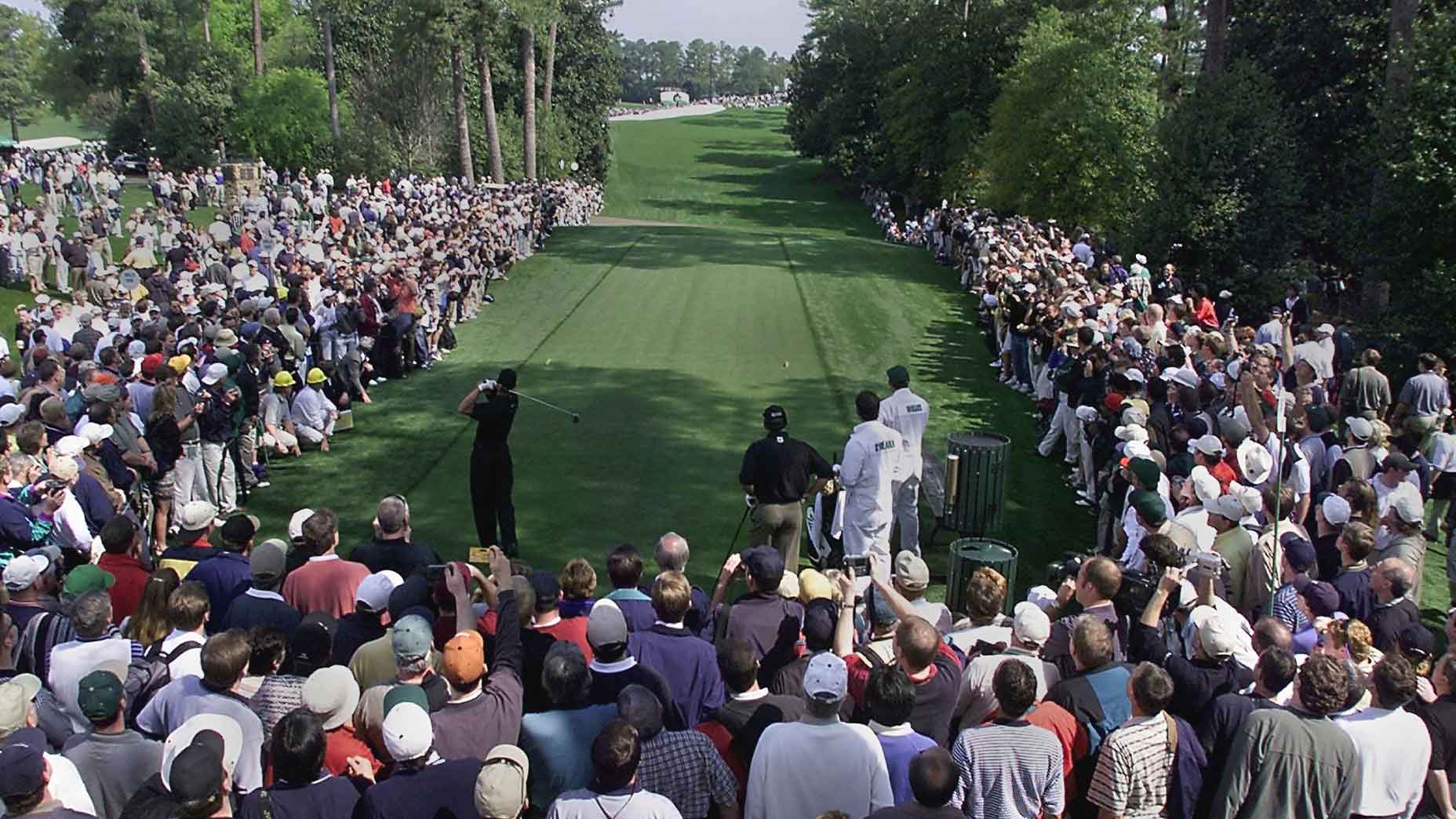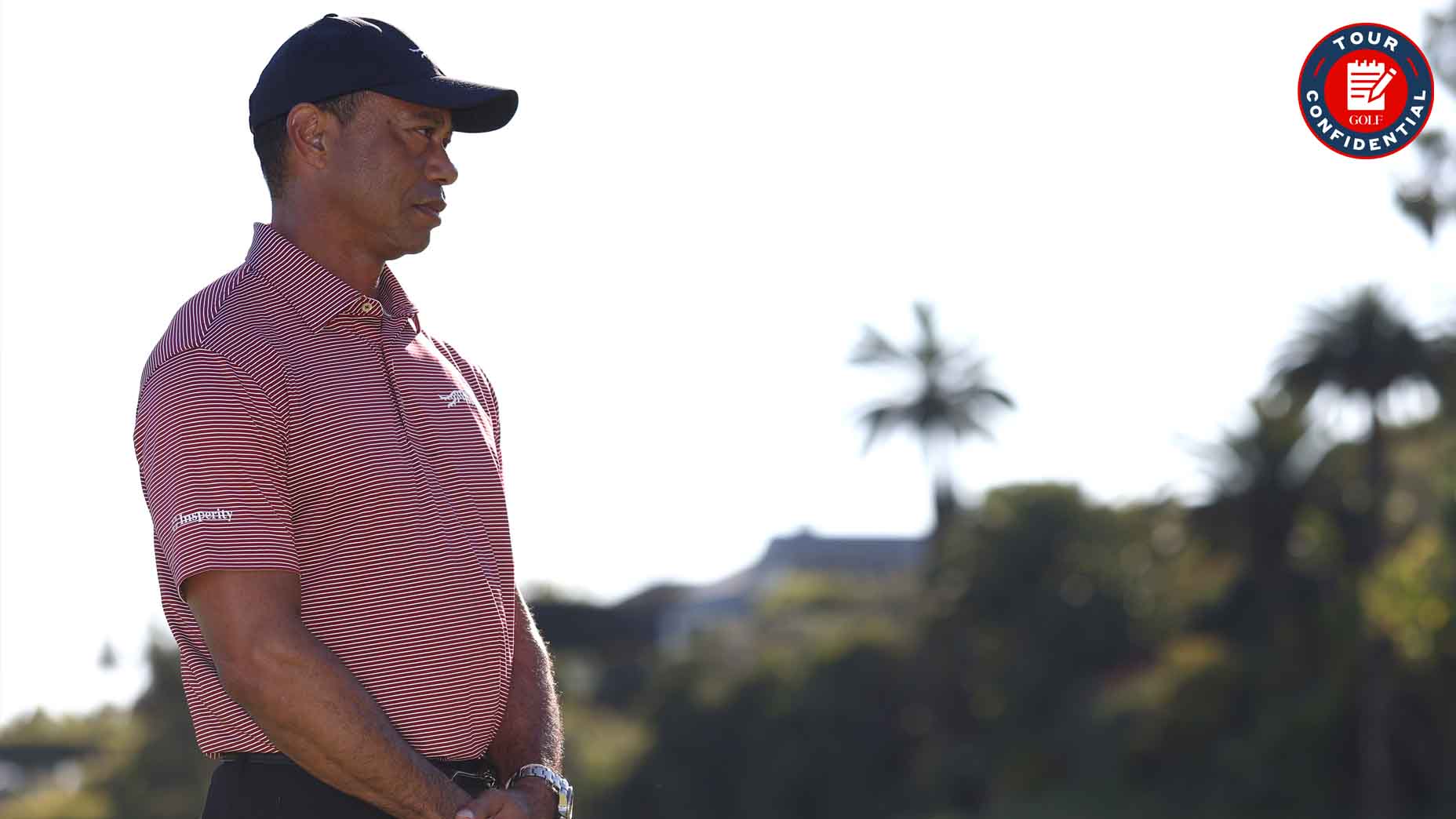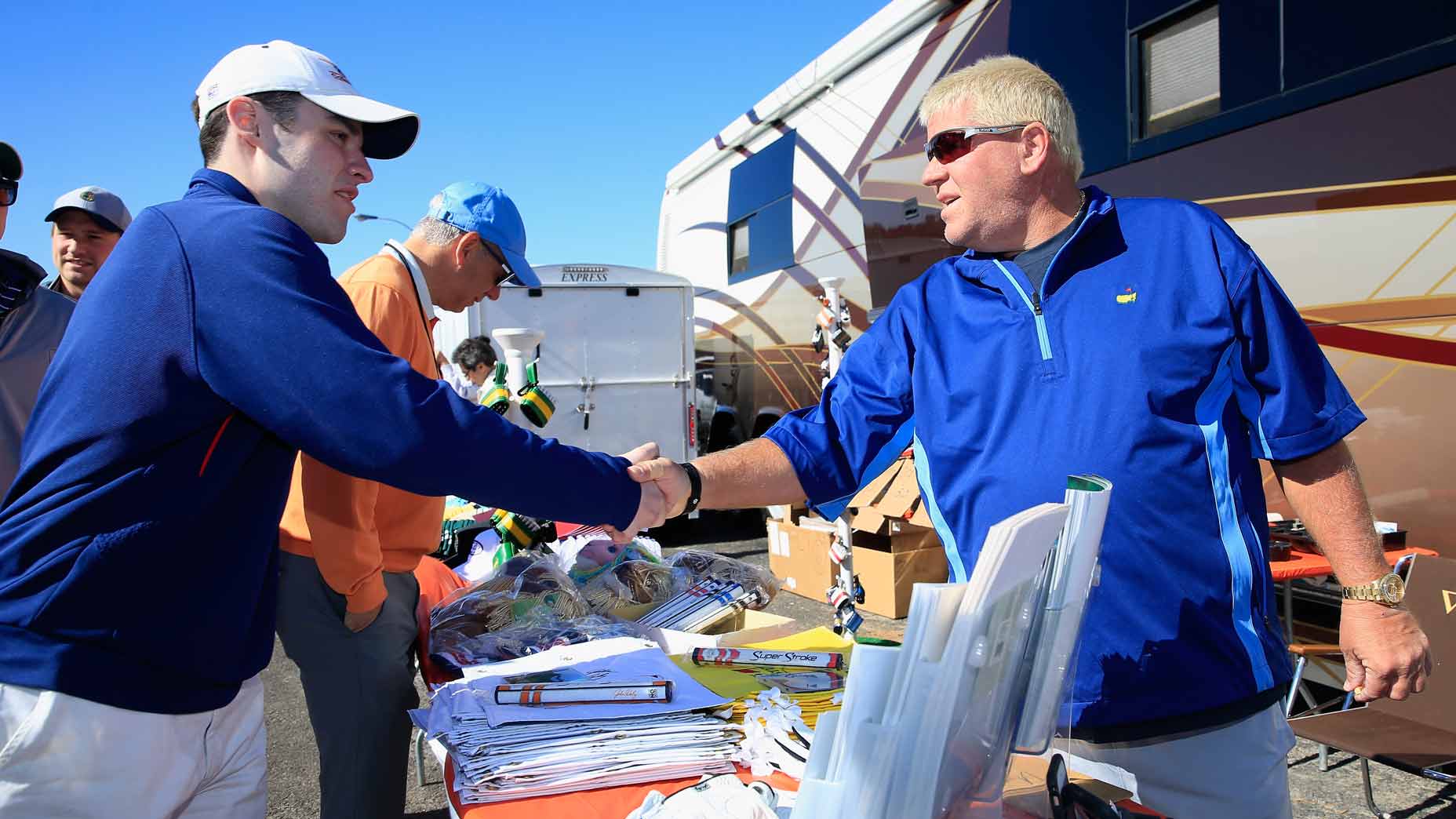Ah yes, the other tradition unlike any other: course changes at Augusta National.
The iconic Masters host is in rarified air among major championship sites in that it does not change locations every year. And, as the only major host that does not move around, the things about Augusta National that do change from one year to the next are often the subject of intrigue.
For the November Masters in 2020, Augusta National responded to pro golf’s Bryson-driven distance craze by backing up tee boxes and creating obstructions to preserve attack angles. With only five months between tournaments in 2021, changes were restricted solely to the food menu, which featured a new Masters Chicken Sandwich and the addition of a “Crow’s Nest” beer.
On Wednesday, the Masters birthed its annual media guide, a 457-page epoch gleaming with every speck of Masters history. There’s something for everyone in the media guide, from a recounting of the tournament’s fabled origins to an in-depth investigation of rainfall during tournament week. But tucked away on page 27 were a trio of updates that provided golf fans with their first glimpses of what to expect in April.
A new bridge? A new pro shop? Photos show Augusta National changesBy: Nick Piastowski
The shifts were listed under the “Significant Hole Changes” section, and indicate updates to three of Augusta National’s most iconic holes. The changes will lengthen holes No. 11, 15 and 18, adding a cumulative total of at least 35 yards to the Masters’ tees. Below is Augusta National’s official explanation for each of the hole modifications.
No. 11: “Masters tees moved back 15 yards and to the golfer’s left. Fairway recontoured and several trees removed on right side.”
No. 15: “Masters tees moved back 20 yards and fairway recontoured.”
No. 18: “Thirteen yards added to the back of the Masters tees without necessitating a change in length to the hole.”
While the changes marked the first official announcement from the club, they’d been rumored for months after a pilot photographer nabbed images of fairways and tee boxes ripped up during the course’s offseason in May.
Considering none of the three holes ranked among the eight easiest at last year’s Masters by scoring average, it’s unlikely the changes were driven by a competitive imbalance. Rather, Augusta National has repeatedly prioritized maintaining the course’s strategic integrity for the purposes of competition. These changes would appear to be no different.
On No. 11, longer tees and recontoured fairways could serve as a deterrent to players who have used the right rough and pinestraw as a bailout area in recent years. The changes could provide incentive to play tee shots closer to the pond on the left, reintroducing the water as a risk/reward component on approach shots.
On No. 15, a famed par-5 guarded by two ponds on either side of the green, extended tees could force more players to hit fairway woods on their approaches, dramatically increasing the shot execution required to reach the green in two shots.

And on No. 18, the adjustments are likely aimed at reintroducing the gargatuan left bunker, which players have driven the ball past in recent years.

Of course, all this information comes with the caveat that few observers have actually seen these changes in the flesh. It’ll be difficult to understand the full significance of each adjustment until we’ve watched the best players in the world navigating them during the course of a competitive round. But, for those of us who live and breathe every trip down Magnolia Lane, the announcement means one thing above all else: It’s almost that time of year again.











